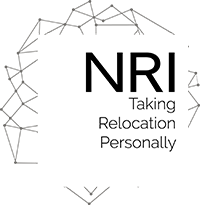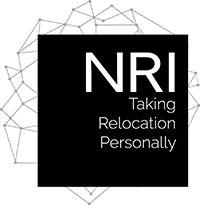
Your competitors are leveraging recent graduate and internship relocation packages to lure young talent. Do you need to offer relocation assistance for entry-level jobs to stay competitive?
Corporate relocation packages have long been associated with executives, employee transfers, and global mobility assignments. However, in today’s competitive landscape, relocation assistance has become a crucial tool for attracting emerging talent.
Companies are using relocation assistance to entice the most promising recent graduates. These businesses know entry-level employees are poised to become their industries’ future pillars.
In this article, we delve into the importance of entry-level relocation packages and explore common practices in relocation assistance for recent graduates. We’ll give the insights you need to remain competitive in talent acquisition.
Relocation Assistance & Packages For Entry-Level Employees
Are Employee Relocation Packages Common For Entry-Level Hires?
Yes, it’s becoming increasingly common for companies to include an entry-level tier within their relocation policies. These tailored recent graduate or internship relocation packages typically offer a lower benefit level or have a capped budget compared to standard employee relocation packages.
While the specifics may vary from one company to another, the overall goal remains the same: facilitating a smooth, cost-effective transition of entry-level hires into their new roles.
When 18% of professionals between the ages of 18-25 are relocating work, offering some relocation assistance for entry-level jobs is critical.
The recognition of the importance of supporting entry-level talent shows the evolving nature of corporate relocation and the emphasis placed on nurturing young professionals as they embark on their careers.
When Should Companies Offer Relocation Assistance For Internships and Entry-Level Jobs?
Entry-level relocation packages should be considered for skilled-worker positions, especially when a company is having difficulty hiring local talent to fill vacant roles.
In industries such as technology, medicine, law, finance, and consulting, specialized skills are in high demand and local talent pools are limited. Therefore relocation assistance for internships or recent graduates in these roles is common. By extending relocation support to entry-level hires, companies address immediate staffing needs and lay the foundation for long-term talent development and retention.
Companies should consider whether including entry-level relocation packages aligns with their broader recruitment goals. If you need to increase the volume or quality of the entry-level recruiting pool, providing relocation assistance for recent graduates serves as a compelling incentive for top talent to join your organization early.
It’s also necessary to evaluate whether competitors are already offering relocation assistance for internships and recent graduates. In a fiercely competitive job market, corporate relocation services can differentiate your company as an employer of choice and attract the most promising candidates.

Which Employees Are a Good Fit For Entry-Level Relocation Packages?
The definition of “entry-level” can vary from one company to another. Entry-level relocation packages are typically tailored for recent university or trade school graduates. These individuals are often young, renters, don’t have children, and possess minimal possessions to relocate.
However, not all entry-level hires fit this conventional profile. Some entry-level employees may be entering a new industry or changing careers later in life. In such cases, their relocation needs may align more closely with those of mid-level employees who often own a home or have a family to relocate.
Will your policy allow exceptions for valuable entry-level employees whose needs fall outside the typical profile? This flexibility is crucial for attracting and retaining valuable talent whose needs may diverge from the typical entry-level employees. Companies should consider categorizing corporate relocation services into different “buckets” of policy levels based on employee circumstances.
Ultimately, when it comes to relocation, the employee’s individual needs should take precedence over their seniority within the company. By prioritizing each employee’s specific requirements, companies can ensure that they offer competitive relocation packages while making exceptions for exceptional candidates.
What Does a Typical Recent Graduate or Internship Relocation Package Include?
Entry-level relocation packages typically offer fewer benefits than those offered for higher-level positions within the company. While the specific inclusions can vary widely by organization and industry, entry-level packages often come with certain limitations or adjustments.
Entry-level hires typically have different needs compared to their more senior counterparts. Recent graduates are usually renters versus homeowners, need smaller moves versus larger relocations, and have fewer familial responsibilities.
The company’s investment in entry-level employees versus more senior employees also significantly influences the scope of entry-level relocation packages.
Some benefits commonly provided to senior-level employees, such as home sale programs or extensive temporary housing allowances, may not be offered or scaled down for entry-level hires. Instead, companies might implement caps on certain benefits, such as the weight allowance for household goods during the move or smaller miscellaneous allowances for relocation expenses.

Consequently, budgets allocated for recent graduate and internship relocation packages are generally lower than those for standard management-level packages.
Lump Sum Relocation For Entry-Level Employees
In some cases, companies offer entry-level hires a lump sum relocation package to cover their relocation expenses rather than providing a comprehensive managed relocation package. This approach allows employees to allocate funds according to their specific needs while allowing companies to manage costs easily.
The choice between offering a lump sum or a managed relocation experience with a cap depends largely on the company culture and the preferences of its employees. Some may prefer the simplicity and autonomy of a lump sum payment, while others may value the support and guidance provided by a managed relocation process, even with limitations.
However, challenges like finding housing or coordinating quality movers may arise without a relocation consultant‘s support. The stress of planning a move may delay or complicate a new hire’s start at their new company. The company also relinquishes control of its relocation budget. There is no opportunity to optimize, and the employee may not use the lump sum as intended.
For companies that want to use lump sum payments as part of their employee relocation strategy, NRI Relocation can manage them through financial services options like American Escrow.
A common question regarding lump sum payments is whether the amount should be based on distance. While distance is a consideration, other factors such as renting versus owning, family size, and individual circumstances influence relocation costs.
For clients seeking guidance, our needs assessment and cost assessment services help determine an appropriate lump sum amount based on specific employee needs.
Relocation Assistance & Packages For Interns
Do Companies Provide Internship Relocation Assistance?
While internship relocation assistance is less common, some companies offer an internship relocation package, especially in industries where entry-level talent is highly competitive.
Providing relocation assistance for interns can be a strategic way for companies to attract top-tier talent before they even begin their careers, potentially securing young talent for future full-time roles.
Industries where internship relocation assistance is common include:
- Tech
- Medical residencies
- Finance
- Engineering
- Consulting

What is a Typical Internship Relocation Package?
A typical internship relocation package places more emphasis on transportation and temporary housing arrangements and less on household goods relocation. The internship relocation package addresses the short-term nature of the position.
Internship relocation packages are unlikely to include rental assistance or real estate benefits, as interns are typically in the area for a short time. Instead, companies may offer resources or guidance for temporary housing near the internship location.
Overall, an internship relocation package is tailored to meet the immediate needs of interns during short-term assignments. Internship relocation focuses on facilitating the transition to the new location and creating a smooth internship experience.
Create a Corporate Relocation Policy For Entry-Level Employees
In today’s competitive job market, providing relocation assistance for entry-level employees and interns is a smart investment in attracting top talent and fostering long-term success.
Whether through tailored entry-level or internship relocation packages or lump sum payments, prioritizing the relocation needs of early-career professionals demonstrates a commitment to their growth and success within the organization.
As you evaluate your company’s talent acquisition strategies, consider the value of investing in entry-level and intern relocation to drive future growth and innovation.
Ready to enhance your recruitment efforts? Reach out to NRI Relocation to design and implement new relocation policies for entry-level and intern hires. Let’s pave the way to the future by investing in the next generation of talent.

